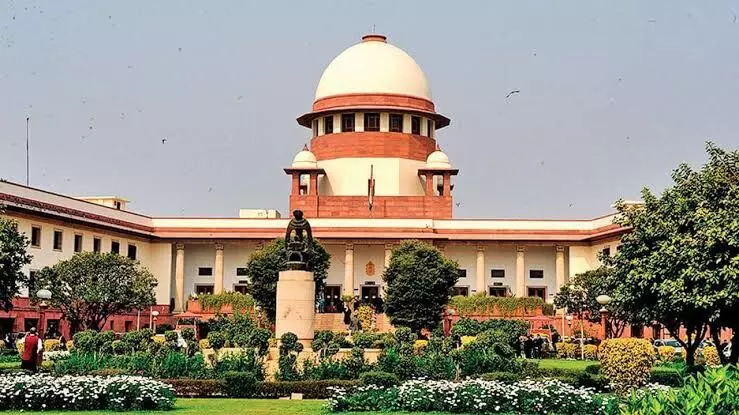
SC to deliver judgment on several provisions of Prevention of Money Laundering Act today
text_fieldsThe Supreme Court will deliver the judgment on petitions challenging the constitutionality of several provisions of the Prevention of Money Laundering Act today.
The judgement assumes significance as it will address several issues concerning investigative powers, witness summoning, arrests and seizures made by the Enforcement Directorate (ED), and the bail process under the PMLA law.
Over a hundred petitions on various aspects of the PMLA have been grouped together and will be heard by the bench headed by Justice AM Khanwilkar who will retire on July 29. The other judges on the bench are Justices CT Ravikumar and Dinesh Maheshwari.
The ruling will have a huge bearing on several politically-sensitive cases where leaders, businessmen, and others have faced arrest under the provisions of the PMLA, but will also shape how the ED and other probe agencies are allowed to act in any current and future cases.
Under the stringent PMLA law, the power of arrest, granting bail, and seizure of property are all outside the ambit of the Code of Criminal Procedure (CrPC).
The petitioners contended that the investigation agencies effectively exercise police powers, so they should be obligated to follow the CrPC while conducting investigations. Since the ED is not a police agency, statements made by the accused to the ED during an investigation can be used against the accused in judicial proceedings, which is against the legal rights of the accused.
The petitioners have argued about how the procedure for initiating an investigation, summoning witnesses or accused persons for questioning, recording statements, and attachment of assets violates the fundamental right of liberty.
Though the punishment for money laundering is a maximum term of seven years, securing bail is very difficult under the statute.
Petitioners have also argued that the power the ED officers are entrusted with under Section 50 of the PMLA to summon anyone and record their statement and force them to sign their statement, makes the defendant devoid of the safeguards and is gross violation of the Constitution.
The government has, however, defended the Act, stating that it is a special law and has its own procedures and safeguards in it.
The Centre has also argued that money laundering is a serious threat to the economic strength of the country and sought to provide a stringent regime for dealing with it.
The petitioners have also challenged the amendments made by way of the Finance Act introduced as a Money Bill and alleged that it was done to overcome the scrutiny of the Rajya Sabha.























